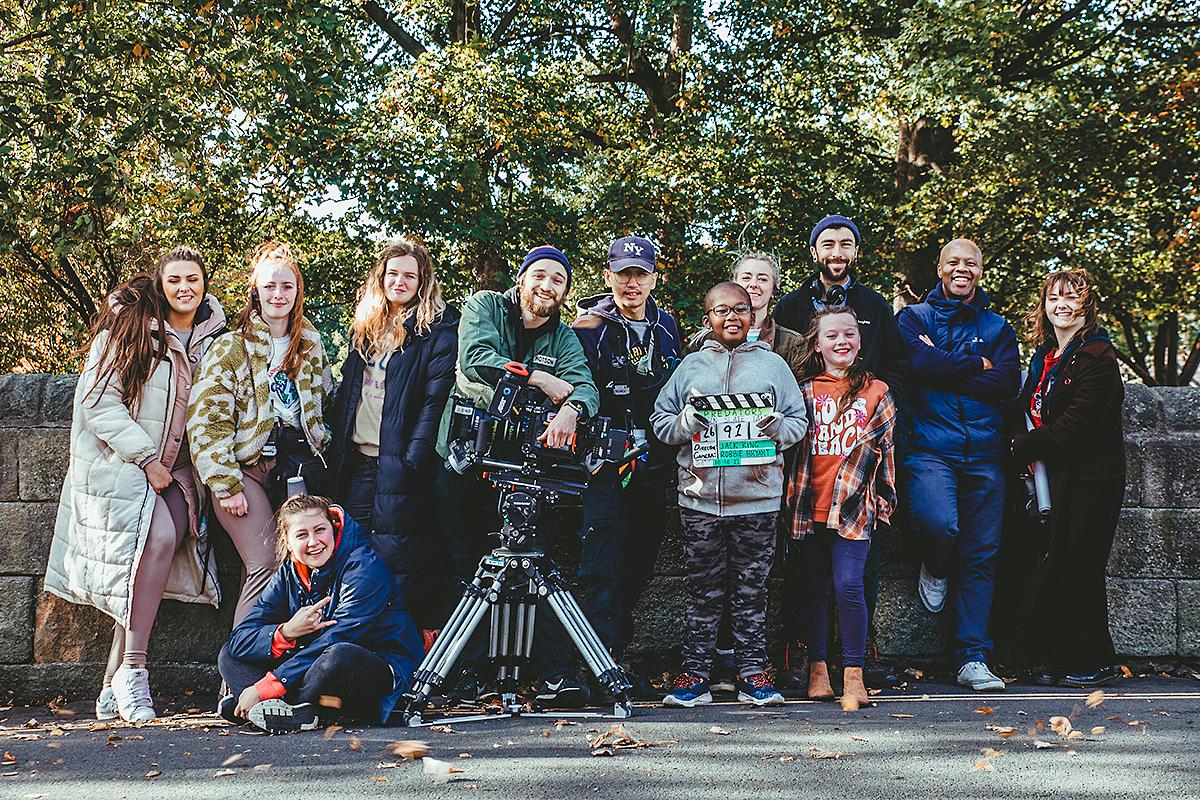One of the questions we get asked most often is ‘Where Do I Find a Producer?’ so we’ve put together some advice on what a producer does, where you can find them and how best to approach.
Why Do I Need a Producer?
Many new and emerging filmmakers ask why it’s necessary to have a producer on shorts, especially those who have had to produce their own work in the past. We see producers as the lynchpin of the team. They lead on budgeting, schedules, locations and crewing whilst also being ultimately responsible for contracting, agreements and finance of the project. They are also a key creative collaborator giving insight and guidance in script development, production and post.
We find the strongest films are those where the director and producer have a shared vision of what they want to achieve and work together to deliver the strongest project possible within the limits of the budget, available crew and scale of production.
Producers are also as important to the health of the film ecosystem and cultural landscape as writers and directors so we seek to support their development in the same way we do writers and directors.
Where Do I Find a Producer?
There’s several places we point writers and directors to if they’re looking for producers on their shorts.
IN DEVELOPMENT: PRODUCER LAB
The first is our
In Development: Producer Lab (formerly Creative Producer Lab) cohort. Over 5 years we’ve supported 8 producers each year that we know have the capacity to deliver. The 6 years of producers and their bios can be found here:
We run the Producer Lab with
Film Hub Midlands so they also have producers in their region with similar experience. For the
Short Film Fund you can work with producers across the UK so you don’t need to limit yourself to the North. Your application will go to whichever region the director is based in but you can collaborate with anyone in the UK.
FESTIVALS
We also suggest looking at recent festival programmes and researching the Northern shorts categories in order to identify up and coming producers in the North. Recent festivals include Manchester, Bolton, Leeds and Aesthetica.
The BIFA longlist also has producers who are looking to make further shorts. Note though that more experienced producers are likely to be looking toward features rather than shorts.
FILM HUB NORTH INITIATIVES
We offer multiple initiatives to support filmmakers meeting up in person and online. We hold regular
in person mixers across the region, plus online roundtables for people to put their questions to us but most end up with the group sharing contact details and information about what collaborators they’re looking for.
UNDER-REPRESENTED PRODUCER LIST
Producer Danielle Goff has put together a list of producers from under represented groups containing contact info and interest areas. This can be found
here.
How much experience does a producer need?
To be eligible for Short Film Fund England, the writer, director and producer need be able to demonstrate a creative track record – this can be in film, television, documentary, theatre or other art forms and can be student work or work created at a grassroots level or without commercial or institutional funding.
How should I approach a producer?
It’s important to remember that as a writer and director the producer doesn’t work for you - they’re part of a creative collaboration and should be approached as such.
We don’t recommend opening with ‘will you produce my film?’ You’re immediately asking someone to work with you for a significant amount of time without ever having met. It also suggests a relationship where the producer has little creative input.
We’d recommend researching producers and identifying through their work and social media what kind of content they could be looking for and approaching ones that might be a match for you and your script. An email or DM could then give a brief overview of your project's themes, why you’re reaching out to them specifically, that you’re developing the idea for the Short Film Fund and asking if they’d be up for a chat.
This approach puts less pressure on the producer and suggests that there’s still space for them in the creative development and to help to shape the project for the fund. And bear in mind that the first thing they’ll likely do is click on your profile or Google you so make sure your previous work is easily findable.

